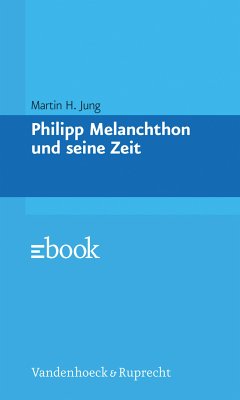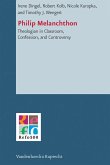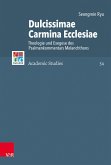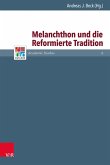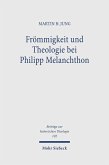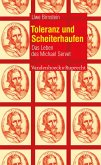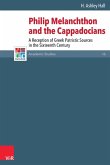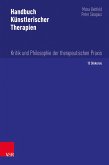2010 marks the 450th anniversary of the death of Philipp Melanchthon. Melanchthon was one of the first and foremost reformists. Unlike Luther, Zwingli and Calvin he lived through and was involved in the entire Reformation period, from the beginnings in 1517 with Luther's 95 theses to the end with the Peace of Augsburg in 1555. He also wrote the first textbook of Protestant theology, the most important of all Protestant confessions of faith, the Augsburg Confession, playing a major role in the subsequent development of Protestant schools and universities. He was an irenic, a believer in ecumenism and devoted to prayer.In this volume Martin H. Jung acquaints us with the heretofore wrongly relatively unfamiliar reformer. The author provides a fascinating and lively look at the life of Melanchthon, the events of his time and the role he played in them. This is more than just a biography: The entire history of the Protestant Reformation is laid out against the background of his life, with particular emphasis on the role Luther, Zwingli and Calvin played. Besides well-known themes such as humanism and the first textbook of Protestant theology penned by Melanchthon, the volume touches on less well-known and surprising new insights into Melanchthon's relationship with the Jews and Moslems. Further, new light is shed on Melanchthon's wife, Katharina Krapp.In addition, the author draws the line from the past to the present. 2010 is an anniversary year for Melanchthon, and 2017 marks the 500th anniversary of the Reformation itself. This volume is an excellent way to prepare for that event.
Dieser Download kann aus rechtlichen Gründen nur mit Rechnungsadresse in A, B, BG, CY, CZ, D, DK, EW, E, FIN, F, GR, H, IRL, I, LT, L, LR, M, NL, PL, P, R, S, SLO, SK ausgeliefert werden.

